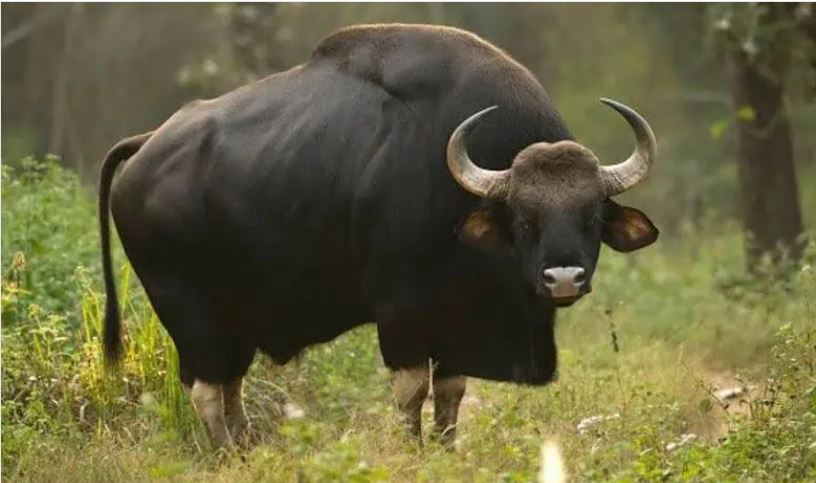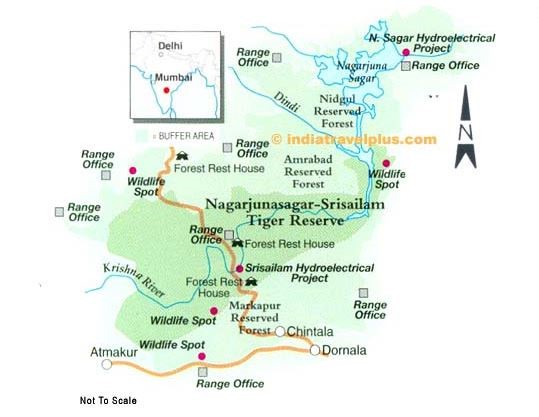Shanghai Cooperation Organisation
India’s External Affairs Minister attended the Shanghai Cooperation Organization (SCO) summit 2024.
- Background- It is world’s largest regional organisation for international security and defence.
- It is a permanent intergovernmental international organization formed in 2001.
- Origin- It is basically an extension of the Shanghai Five Group (China, Kazakhstan, Kyrgyzstan, Russia and Tajikistan), created in 1996.
- Headquarters- Beijing (China)
- Founding nations- Kazakhstan, China, the Kyrgyz Republic, Russia, Tajikistan, and Uzbekistan.
- The SCO now has 10 members, including India, Iran, and Pakistan, Belarus in addition to the founding members.
- Observer states – Afghanistan, and Mongolia (2 members).
- Dialogue Partners - Armenia, Azerbaijan, Cambodia, Nepal, Sri Lanka, Turkey and more (14 members).
- Significance- The SCO consists of 40% of the world’s population and 30% of global gross domestic product (GDP).
- The SCO has been an observer in the UN General Assembly since 2005.
- Goals of the SCO
- To strengthen mutual trust, friendship, and good-neighbourliness between the Member States.
- To encourage the effective cooperation between the Member States in such spheres as politics, trade, economy, science and technology, culture, education, energy, transport, tourism, environmental protection, etc.
- To jointly ensure and maintain peace, security and stability in the region and
- To promote a new democratic, fair and rational international political and economic international order.
Shanghai Cooperation Organization (SCO) summit, 2024
- Venue- Astana, Kazakhstan.
- Theme- Strengthening Multilateral Dialogue—Striving Towards a Sustainable Peace and Prosperity.
- Objective- Addressing key regional issues and providing a platform to advocate for dialogue and diplomacy once again.
- New SCO member- Belarus recently upgraded to member state from Observer status in (SCO), becoming its 10th member state.
Belarus, officially the Republic of Belarus, is a landlocked country in Eastern Europe.
References
- Indian Express | Shanghai Cooperation Organisation Summit
- SCO | General information
Indian Gaur & Srisailam Tiger Reserve (NSTR)
The Indian gaur, previously locally extinct, has been spotted in the Nagarjunasagar Srisailam Tiger Reserve (NSTR) after decades.
Indian Gaur
- The Gaur also called Indian Bison, is the largest extant bovine, native to South Asia and Southeast Asia.
- Scientific Name- Bos gaurus
- Diet- Herbivore, primarily grazing on grasses, leaves, and fruits.
- Distribution – It is prevalent in Western Ghats and also found in north east India and Nepal, Bhutan, and Bangladesh.
- Habitat- They are largely confined to evergreen forests or semi-evergreen and moist deciduous forests, but also occur in deciduous forest areas at the periphery of their range.
- Population diversity- Mainland South and Southeast Asia, including Vietnam, Cambodia, Laos, Thailand, Peninsular Malaysia, Myanmar, India, Bangladesh, Bhutan, China and Nepal.
- Threat - Gaur is highly threatened by poaching for trade to supply international markets.
- Conservation Status
- IUCN Red List- Vulnerable
- CITES- Appendix I.
- Wild Life Protection Act, 1972- Schedule I

Nagarajunasagar Srisailam Tiger Reserve (NSTR)
- Nagarjunsagar-Srisailam Tiger Reserve is the largest tiger reserve in India.
- Location- Nallamala hill ranges of Andhra Pradesh.
- Geographical sperad- The reserve spreads over 5 districts, Nandyal District, Prakasam District, Palnadu District, Nalgonda District and Mahabub Nagar district.
- Tiger Reserve Status- It attained the status of a Tiger Reserve in 1983.
- Area- The total area of the reserve including core and buffer is 3727.82 Square Kilo meters and it is India’s largest Tiger Reserve.
- Two wildlife Sanctuaries, namely Rajiv Gandhi Wildlife Sanctuary and Gundla Brahmeswaram Wildlife Sanctuary (GBM) constitute the Tiger Reserve.
- Vegetation- Features tropical, dry, moist, deciduous vegetation with diverse flora and fauna.
- River- The Krishna River flows through the reserve for about 270 kilometers.
The Krishna River in the Deccan plateau is the third-longest river in India, after the Ganges and Godavari.

References
- Times of India | Indian Gaur
- Tigerreservesinindia | Indian Bison
- Nstr | About us
International Cooperative Day
The Union Minister of Cooperation recently addressed the conference on the occasion of the 102nd International Day of Cooperatives.
Co-operatives are people-centred enterprises owned, controlled, and operated by their members to meet their shared economic, social, and cultural needs and aspirations.
- Background- The International Day of Cooperatives, established by the UN on December 16, 1992, is celebrated on the 1st Saturday of July.
- Aim- It aims to raise awareness of cooperatives and further the values of the movement, which includes:
- International solidarity
- Economic efficiency
- Equality
- Global peace
- Nodal ministry - Ministry of Cooperation.
- Objective- Its goal is to promote and expand cooperatives globally, highlighting their role in addressing major UN issues and strengthening international partnerships.
- 3rd Foundation Day- The day also marks the 3rd foundation day of the Union Ministry of Cooperation, which came into being on July 6, 2021.
Recent Highlights, 2024
- Recognition by UN- The year 2025 has been declared the International Year of Cooperatives (IYC2025) by the United Nations General Assembly recently.
- Theme, 2024 - Cooperatives Build a Better Future for All.
- New Initiatives in India - The Ministry of Cooperation has launched over 54 initiatives in the cooperative sector recently.
- The ministry will also inaugurate launch of ‘Bharat Organic Atta’ produced by the National Cooperative Organics Limited (NCOL).
- The ministry will launch the scheme for 50% assistance on the purchase of nano-fertilizer by the farmers for the FY 2024-25.
Reference
PIB | International Cooperative Day
Money mule
The Reserve Bank of India has warned banks about mule accounts and urged them to strengthen their security measures to curb digital fraud.
- A money mule is someone who receives and moves money that came from victims of fraud.
- A person may become a money mule intentionally or unintentionally and receive illegally acquired funds and help in its transfer to others.
- The Money mules are frequently innocent individuals who are drawn into the plan by a variety of tactics, such as job offers, online classified ads, or social media postings.
- Financial Frauds- Money Mule Actions are commonly associated with various types of financial crimes, such as money laundering, fraud, and cybercrime.
- Types of Money Mules- The FBI categorizes money mules into 3 categories based on their goals and degree of involvement:
- Unknowing/unwitting money mules
- Witting money mules
- Complicit money mules
- Process - Fraudsters contact customers via e-mails, chat rooms, job websites or blogs and convince them to receive money into their bank accounts, in exchange of attractive commissions.
- The fraudsters then transfer the illegal money into the money mule’s account.
- The money mule is then directed to transfer the money to another money mule’s account starting a chain that ultimately results in the money getting transferred to the fraudster’s account.
- When such frauds are reported, the money mule becomes the target of police investigations.
- Mule Accounts - It is a bank account used to receive/transfer funds acquired illegally on behalf of others.
- These accounts are often used for money laundering and tax evasion.
- Mule accounts are in violation of several rules and individual involved in it can be prosecuted under the Prevention of Money Laundering Act (PMLA).
References
- Newindianexpress | Money Mule
- Sanctionscanner | Money Mule
Limestone cave, Leang Karampuang
A team of Indonesian and Australian researchers discovered the cave painting inside the Leang Karampuang cave.
Findings
- Location- South Sulawesi, Indonesia.
- These caves on Sulawesi have revealed the world's oldest hunting scene, now dated to at least 48,000 years.
- It is famous for its prehistoric rock art, specifically hand stencils and animal paintings, which are estimated to be around 35,000 to 40,000 years old.
- Evidence- Prehistoric people painted 3 human figures and a wild pig on a limestone cave ceiling using red pigment.
- Flickering torchlight in the dark cave would have brought this art work to life.
- This innovative method is poised to revolutionize rock art dating globally.

Limestone caves
- Limestone caves are formed when rainwater seeps through cracks in limestone rock and dissolves it.
- Limestone is generally formed in a warm shallow sea where plants and animals thrive.
- Speleogenesis - Limestone caves are primarily formed through the process of chemical weathering. The process of cave formation is known as speleogenesis.
References
- The Hindu | Discovery of Limestone cave
- Nypost | Limestone cave

